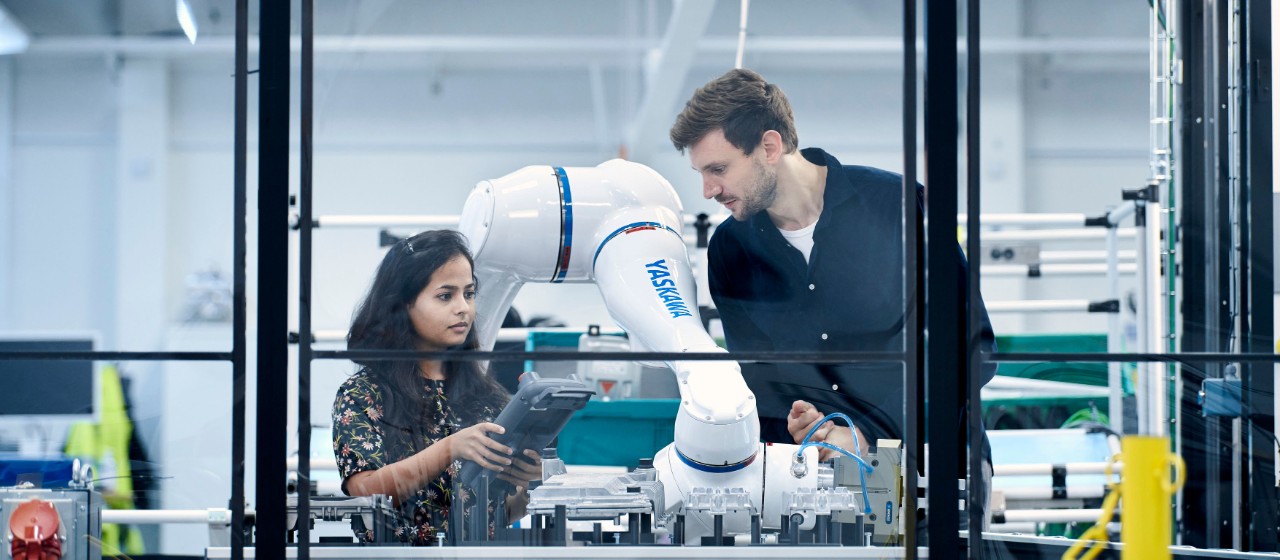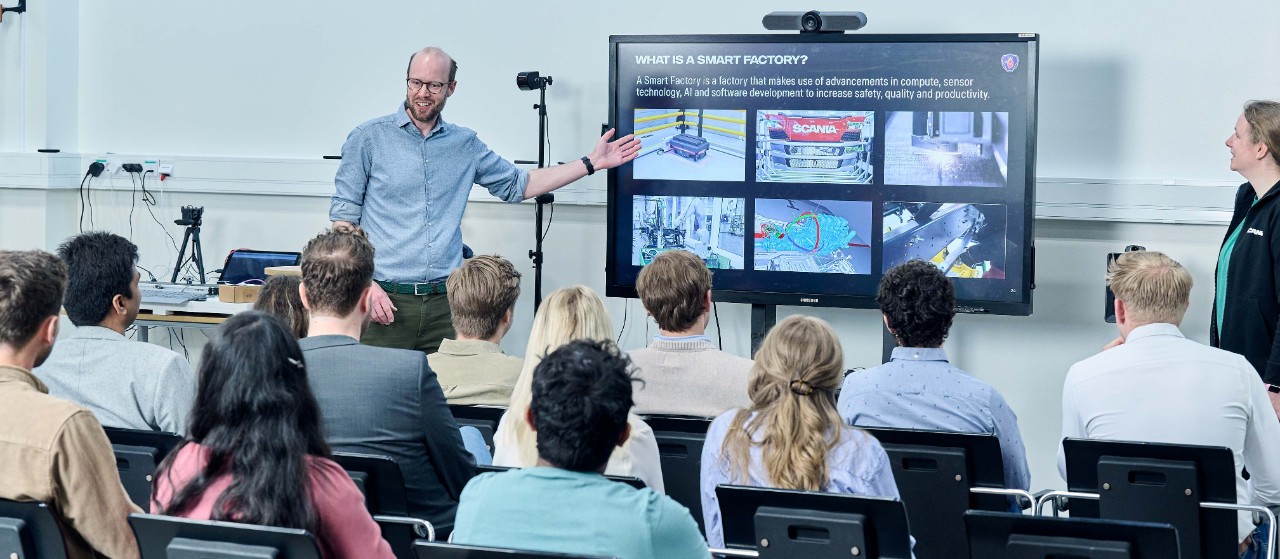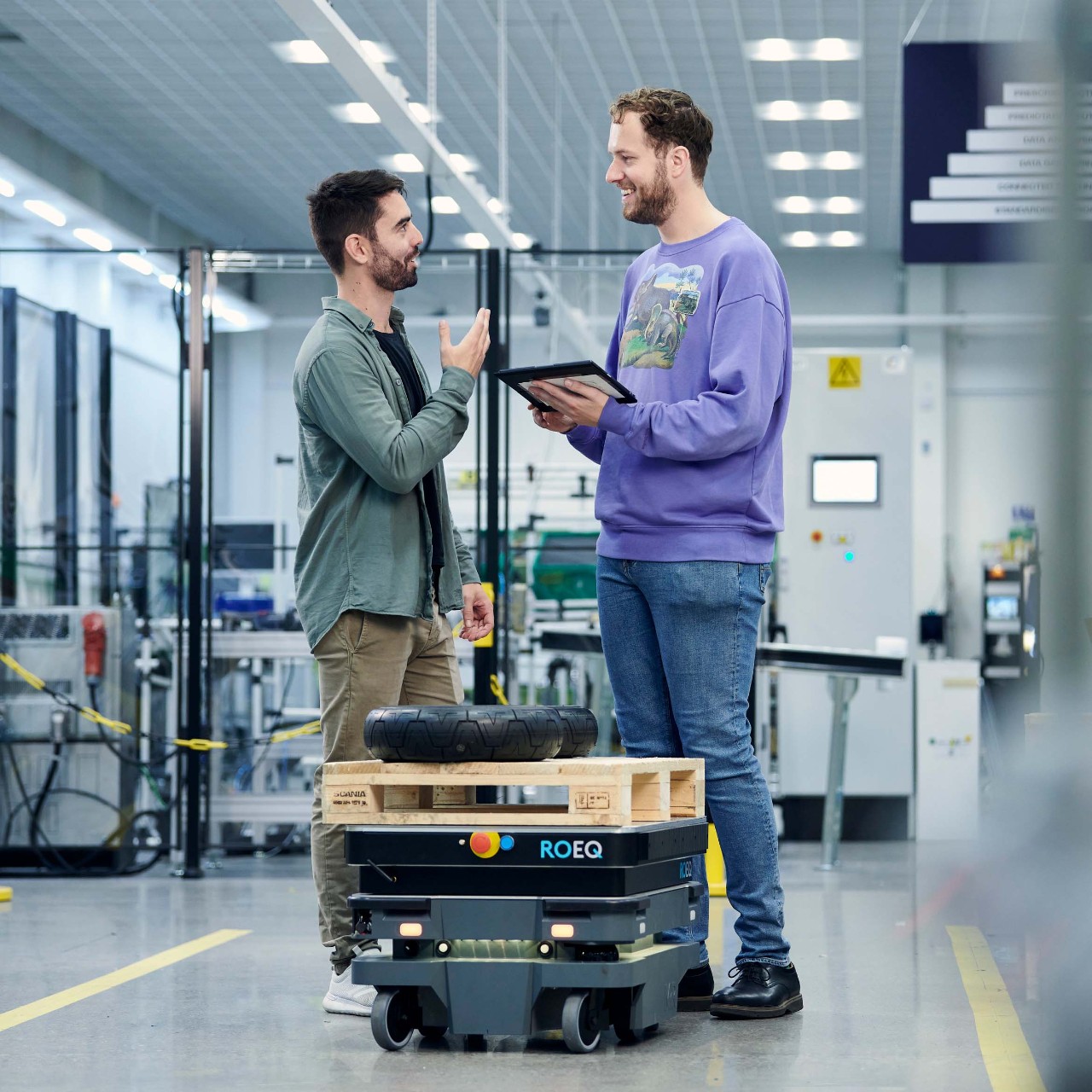
The smart lab approach
Finding ways to make production smarter
Change is coming fast to our industry, and if we are to drive the shift to cleaner, safer and smarter transport then we must be able to innovate quickly. That’s why Scania has in recent years taken an experimental technology approach to complement its core competencies and production capabilities.
The idea is to explore and pilot how emerging technologies such as virtual reality, generative artificial intelligence and computer vision could enhance our production, engineering and collaboration processes around the globe. Then we share those findings with colleagues and business areas across Scania.
In these experimental environments Scania is giving room to its very own innovation culture, developing and testing many different ideas to fail fast, learn fast and get the viable ideas into serial production as quickly as possible. We try new ways of working that help us innovate faster, work smarter and ensure we are able to adapt in an agile way to the fast-changing world of transport. We can’t afford to take big risks in production, which is why we need a safe testing environment where it’s safe to fail.

Smart Factory Lab
Scania set up the Smart Factory Lab in 2019 to maximise the potential benefits for production, logistics and R&D that stem from digitalisation and automation. So far, it has delivered more than 70 projects and educated many Scania colleagues across the global organisation on the benefits of implementing new technologies.
Smart Factory’s team in Sweden and Brazil consists of engineers, data scientists, project managers, and thesis students, as well as people on internal temporary job rotations within Scania. The team collaborates with universities, various Scania departments around the globe and digital production labs within TRATON Group to explore emerging technologies such as robotics and operator support. This helps them to understand how Scania can increase production flexibility and speed up design validation processes. By doing this we can reduce quality deviations and automate certain tasks that improve human well-being, safety and productivity.
